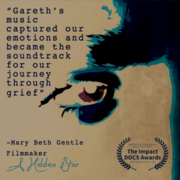New York, NY (Top40 Charts) With a voice as smooth as honey mixed with hot buttered soul,
Barbara Acklin became one of the most prolific singer/songwriters of the 20th Century. The "First Lady of Brunswick" sold millions of records, and is responsible for chart-topping hits such as "Have You Seen Her," and "Stoned Out of My Mind," by The Chi-Lites. In recognition of
Black History Month, Brunswick honors Acklin for her lifelong contributions to American music by issuing her estate a set of commemorative plaques highlighting her contributions.
"Am I The Same Girl" is currently Acklin's top-ranking recording on Spotify with nearly 4.5 million streams, even more than Swing Out Sisters' 1992 hit version of the song, streamed more than 3 million times.
"Barbara Acklin is a history maker," said Paul Tarnopol, president and co-owner of Brunswick Record Corporation, and son of the late Nat Tarnopol, the label's chief architect. "This industry honor is long overdue. With this recognition, Barbara's contributions will be forever cemented in music history. She was one of the most prolific singer-songwriters of our time, and we are pleased that Brunswick was instrumental in her success."
Born in 1943 Oakland, California, Acklin moved with her working-class parents to
Chicago when she was about four or five years old. After the family settled in Bronzeville on the South Side, the budding soprano honed her voice in the choir at Big Zion Baptist Church before graduating from Dunbar High School in 1961. Soon thereafter, she earned money as a waitress at the Club DeLisa, 5521 S.
State Street, and also as a member of the Bill Cody Dancers, where she became a standout talent.
In 1966 she began a receptionist job at Brunswick's office in a two-flat located at 1449 S. Michigan Ave. on Record Row. There, she would go on to help craft the label's signature sound, making it a music powerhouse for a decade. Though originally established in 1916, by the mid-1960s Brunswick was exclusively home to African American recording artists such as Jackie Wilson, ("Lonely Teardrops")
Little Richard ("Try Some of Mine"), Gene Chandler ("The Girl Don't Care"), Tyrone Davis ("Turn Back the Hands of Time"), The Chi-Lites ("
Oh Girl") and, the Artistics ("
I'm Gonna Miss You"), among others. Brunswick's classic soul catalog ranges from 1957 to 1982
The label was instrumental in developing what became known as "Chicago Soul," a musical genre with full-bodied roots in gospel and blue accentuated with melodic touches and harmonies. Along with Chess Records in Chicago, Detroit's Motown Records, and Stax Records out of Memphis, Brunswick's classic soul catalog ranges from 1957 to 1982 (having transformed from the Decca Records imprint to its own R&B label in 1960).
It was while sitting behind Brunswick's reception desk that Acklin met national heartthrob and crooner Jackie Wilson and quickly pitched a song she had written. "Whispers Getting Louder," became a hit for Wilson and the song propelled his career back to the top of the charts. The song advanced to Number 5 on the Billboard R&B chart.
"Here was this big star coming through and
Barbara wanted him to hear a song she'd just written. (He) asked her to sing the song for him and it instantly blew him away," said Marshall Thompson, the last surviving original member of The Chi-Lites. "That's when Jackie told (producer and A&R director) Carl Davis that she could not only write songs but she could sing them too.
Barbara became a triple-threat -- writer, arranger and, singer---and she could really belt it out."
Acklin's songwriting career took to new heights when she partnered with Eugene Record, lead singer of The Chi-Lites. Together the duo penned, "Have You Seen Her," and many of the quartet's chart-topping hits over the years, and "Two
Little Kids," by
Peaches & Herb, which became a Top 20 hit in 1968. She also authored and co-wrote a number of hit songs for other Brunswick artists, often teaming up with producers Carl Davis, Otis Leavill, Richard Parker, Willie Henderson, and Leo Graham. The songstress worked with then up-and-coming engineering legend Bruce Swedien, who later was credited with developing Michael Jackson's signature chart-busting sound.
"Barbara was a beautiful woman in a room full of guys--but she was tough, didn't take no stuff, and could hold her own with any of us," Thompson said. "When we were on the road she kept us together. She watched our back and we watched hers; we were like a family.
It was bad enough that we all had to deal with a lot of racial hostility, especially touring the South--but (Barbara) also had to deal with folks who didn't always treat women with the respect they deserved."
Early in her career, Acklin modeled her singing style after her icon Dionne Warwick, but later developed her own unique phrasing and raw, sultry sound. Her deeply personal lyrics often told the story of unrequited love; enduring hope; passion and pain; and the fear of loss. As Acklin's career as a singer-songwriter flourished, Brunswick helped her shatter glass ceilings by providing her with the opportunity to work as a recording engineer, arranger and, backup singer for several of the label's artists.
In 1968 she recorded a duet, "From the Teacher to the Preacher" with Chandler. While touring the South with Brunswick artists, her album, "Love Makes A Woman," catapulted Acklin into the stratosphere with the release of its title track reaching number three on the R&B chart and number 15 on the U.S. pop chart, earning her a gold record. She subsequently recorded four more Brunswick albums,
Seven Days of Night (1969), Someone Else's Arms (1970), I Did It (1971), and I Call It Trouble (1973).
"Barbara was a beautiful, soulful lady," said legendary arranger Willie Henderson, in a rare interview. He worked with Acklin for the better part of three decades. "She was a tremendous talent, a hard worker, and an all-around nice person.
Barbara used to walk around the office, throwing out a few lyrics and we'd all go back and forth until we developed it into something. She was always writing, always creating."
Henderson also noted, "The times were changing, we were young and doing our best to contribute in some kind of way" he said. "Martin Luther King, Jr., had moved to
Chicago at one point; and, his murder had a profound impact on how we all thought about the transformative power of music.
Barbara played a big part in shaping the
Chicago sound; and, Brunswick gave us the space to be creative and contribute in a meaningful way."
After leaving the label, Acklin signed with Capitol Records in 1974, continued to perform and nurture younger artists entering the business. Married three times, the songstress raised two children, a godson, and two stepdaughters in the city's Pill Hill neighborhood, home to a multitude of African American professionals. Her home on south Ridgeland Avenue was a revolving door of musicians, celebrities, political figures, and other notables, many of whom attended late-night jam sessions there.
"My mother blazed trails for
Black people and especially women in the recording industry," said Samotta Acklin, herself a singer and producer who travels the world performing covers of her mother's songs. "She broke these barriers while juggling a marriage, raising two children, and being a godmother to neighborhood kids.
"The Acklin family is honored to accept this recognition from Brunswick," she continued. "My mother's story is long overdue and is finally being told. I'm also grateful to the global DJ community that continues to stream my mother's music and introduce her to a new generation of music lovers."
Acklin was on the verge of reviving her career and unveiling new music when she became ill in Nebraska and died unexpectedly on November 27, 1998. Her legacy and impact on music live on.
www.BrunswickRecords.com
www.facebook.com/samotta.acklin
twitter.com/BrunswickRecor1























